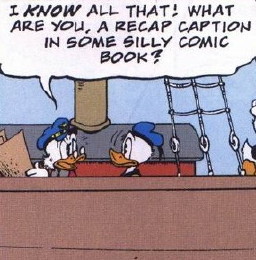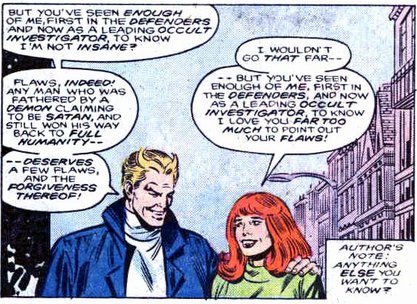Since I mentioned the As You Know trope before (the one where characters tell each other things they both know (usually beginning with the words “as you know…”), just for the benefit of the reader), I couldn’t resist sharing an even more exaggerated variation of it: Expospeak, where characters unrealistically explain things and do “exposition” for the setting they’re in, even in what should supposedly be normal dialogue.
The TV Tropes page linked above has what I believe to be a perfect example, though it’s an intentional one, written for a bad short stories competition:
“Send a message back to Command Central on Earth and ask for their advice, which we will be able to receive immediately even at this great distance, thanks to the ingenious manipulation of coherent radiation through a Bose-Einstein condensate and the bizarre influence of the Aspect effect, which enables us to impart identical properties to remotely separated photons,” Captain Buzz told the feathered Vjorkog at the comms desk, “and tell them our life-pod is going to explode in eight seconds.”
It’s exaggerated, of course… but a lot of science fiction (and, to a lesser extent, fantasy) is guilty of this trope. Writers, if you really need to explain how something works, do it in the narration. People don’t talk about how cars work every time they drive one, you know. 🙂


